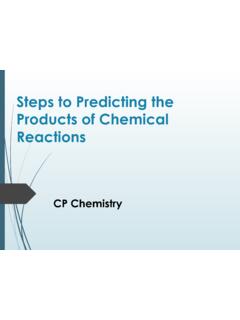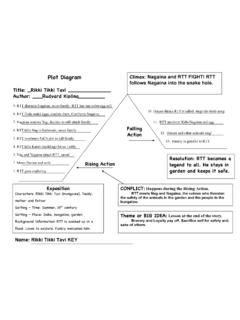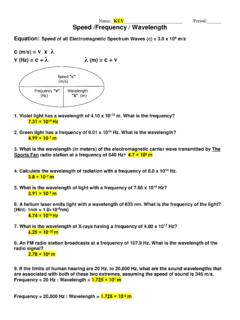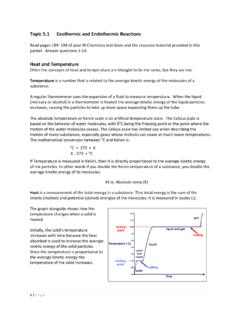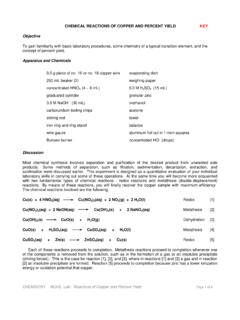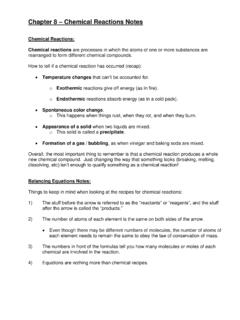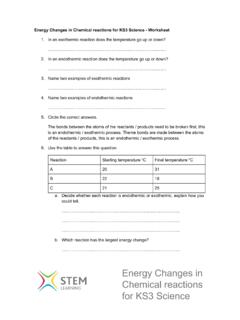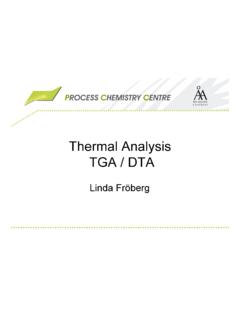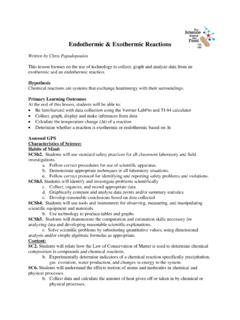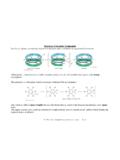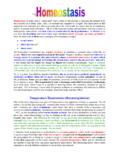Transcription of Steps to Predicting the Products of Chemical Reactions
1 Steps to Predicting the Products of Chemical Reactions CP Chemistry TYPES OF Reactions REVIEW 2 NaNO3 + PbO Pb(NO3)2 + Na2O C2H4O2 + 2 O2 2 CO2 + 2 H2O ZnSO4 + Li2CO3 ZnCO3 + Li2SO4 V2O5 + 5 CaS 5 CaO + V2S5 S8 + 8 O2 8 SO2 Double Displacement Combustion Double Displacement DOuble Displacement Synthesis Organize Your Thoughts Chemical Reactions Chemical equations Chemical equations Balancing equations Predicting Products from reactants Synthesis Decomposition Single replacement Double replacement Combustion Packard, Jacobs, Marshall, Chemistry Pearson AGS Globe, page 175 Predicting THE Products We want to be able to predict the Products for the following reaction types Combustion Single Displacement Double Displacement RULES FOR Predicting Products OF Chemical Reactions Here are a few important things to remember when Predicting Products : The compounds form must be neutral ionic compounds (which means you ll be paying attention to their charges) You do NOT carry subscripts from the reactants to the Products .
2 You always balance your equation LAST Predicting REACTION Products : COMBUSTION Reactions A hydrocarbon and oxygen (O2) indicate a combustion reaction If it is combustion, then just write H2O and CO2 as Products Then, balance the equation (can be tricky) Examples: ___CH4 + ___O2 ___ C4H10 + ___ O2 ___ CO2 + ___ H2O ___ CO2 + ___ H2O 2 2 8 10 13 2 Predicting REACTION Products : REPLACEMENT Reactions A metal will not always replace a metal in a compound dissolved in water because of differing reactivities An activity series can be used to predict if Reactions will occur To replace a metal, the other metal must be MORE REACTIVE Same applies for halogens To predict the Products : Replace the single element with the corresponding element in the compound A metal will replace the cation in the compound A non-metal will replace the anion in the compound If the element is more reactive than the one it attempts to replace, then the reaction will be spontaneous and exothermic Otherwise, it will not be spontaneous and will be endothermic (NO REACTION) Predicting REACTION Products : SINGLE REPLACEMENT Reactions Mg + AlCl3 Al + MgCl2 PREDICT IF THESE Reactions WILL OCCUR Al + MgCl2 Can magnesium replace aluminum?
3 Activity Series YES, magnesium is more reactive than aluminum. 2 2 3 3 Can aluminum replace magnesium? Activity Series NO, aluminum is less reactive than magnesium. Therefore, no reaction will occur. No reaction MgCl2 + Al No reaction The question we must ask is can the single element replace its counterpart? metal replaces metal or nonmetal replaces nonmetal. Order of reactants DOES NOT determine how they react. FeCl2 + Cu MgBr2 + Cl2 Zn(NO3)2 + H2 Can Fe replace Cu? Yes Li Rb K Ba Ca Na Mg Al Mn Zn Cr Fe Ni Sn Pb H2 Cu Hg Ag Pt Au F2 Cl2 Br2 I2 Can Zn replace H? Yes Can Br replace Cl? No NO REACTION Fe + CuCl2 Zn + HNO3 MgCl2 + Br2 Activity Series Predicting REACTION Products : SINGLE REPLACEMENT Reactions If it is double replacement, then the cation and anions switch places It is helpful to separate each compound into their cation and anionic parts with their charges Then switch places, and criss cross the new compounds to make sure they are the correct neutral compound formulas Predicting REACTION Products : DOUBLE REPLACEMENT Reactions AB and CD are both ionic compounds Separate each compound & write their charges Switch places and re-write new compounds Example: Pb(NO3)2 + KI Pb2+ NO3- K+ I- Pb2+ I- K+ NO3- Balance at the end!
4 ! PbI2 + KNO3 2 Predicting REACTION Products : DOUBLE REPLACEMENT Reactions 2 Not all double replacement Reactions will occur In order for a double replacement reaction to take place: Both of the reactants must be soluble in water If a compound contains at least one of the ions that is proven soluble, then the compound will be at least moderately soluble One product must be soluble and one product must be insoluble The insoluble product is the precipitate that forms when the reaction takes place Usually a precipitate is a solid, but it doesn't have to be Predicting REACTION Products : DOUBLE REPLACEMENT Reactions SOLUBILITY TABLE iron (II) chloride + sodium carbonate ???? Using a SOLUBILITY TABLE: sodium chloride is soluble iron (II) carbonate is insoluble so reaction occurs!! 2 FeCl2 Na2CO3 + Predict if a reaction will occur when you combine aqueous solutions of iron (II) chloride with aqueous sodium carbonate solution.
5 If the reaction does occur, write a balanced Chemical equation showing it. (aq) (aq) Predicting REACTION Products : DOUBLE REPLACEMENT Reactions Using a SOLUBILITY TABLE: Both reactants are soluble SO REACTION OCCURS! NaCl FeCO3 (aq) (ppt) +
